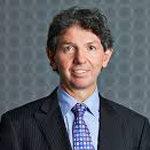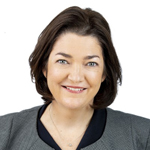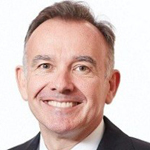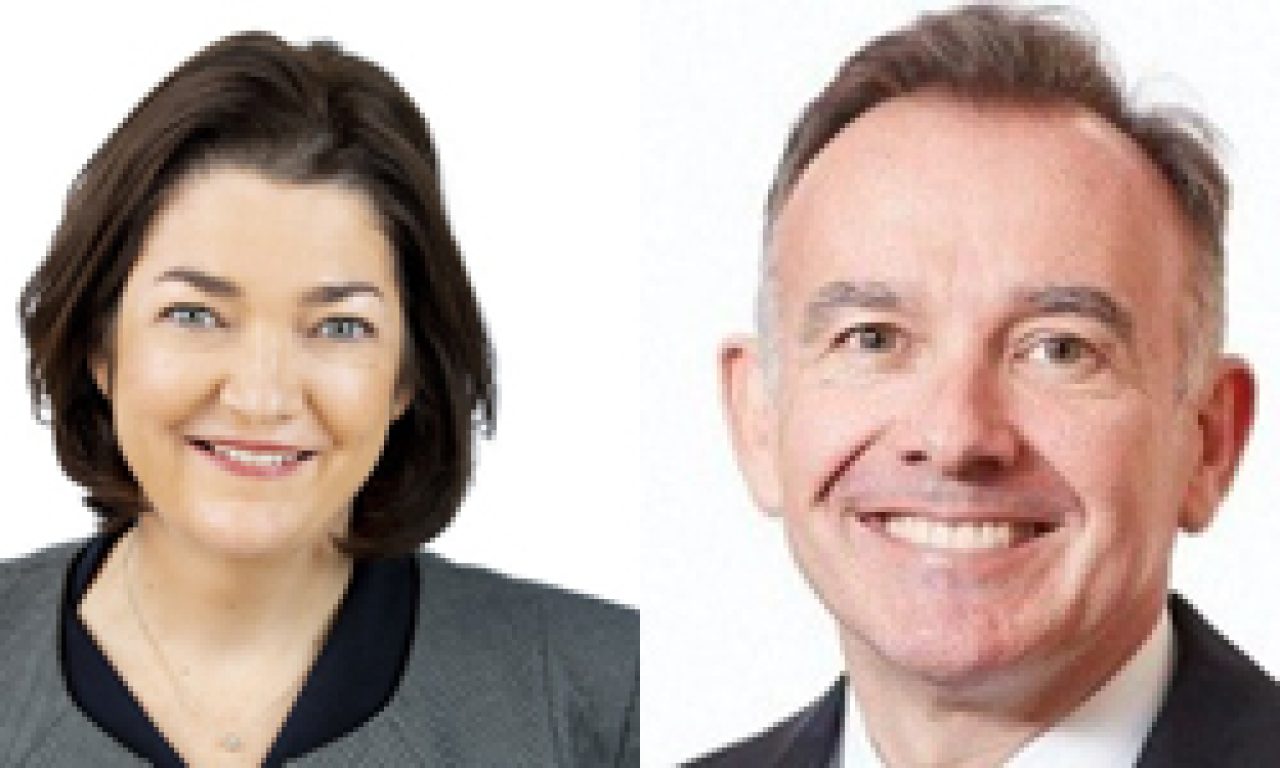by Greg Bright
Ahead of this week’s Chant West annual super industry Awards, being held via live stream video on May 14, rather than the usual black-tie dinner, several of the finalists for the top awards speak about the current difficult climate and what the industry has achieved.
We have taken the opportunity to profile four funds which regularly feature in the top awards. Each has shown excellent investment performance over the long term, but they have tended to take different paths to that result (see separate report from Chant West this issue). Each of the four funds we spoke with is proud of how its staff have handled the crisis with a minimum of disruption to member services.
UniSuper
UniSuper, the not-for-profit fund representing about 450,000 tertiary education-related members, and, to which the 37 public universities in Australia are contributing employers, was the number one investment performer in its category in 2019. But, in these times, that is not what it is most proud of, according to Kevin O’Sullivan.
O’Sullivan, the fund’s chief executive, and a frequent acceptor of industry awards on behalf of his fund, alongside John Pearce, the fund’s CIO, says: “The thing I am most proud of is the way we have handled this pandemic. Liquidity was never going to be an issue for us, although we were concerned it might have been an issue for others. To the credit of the industry, I believe that no super funds have had any issues with the liquidity required for the early release program. We were well prepared for the early release program,” he says, referring to the Government’s initiative to allow easier access to up to $20,000 in super by eligible members.
“We have about 850 staff and within two weeks we were able to have them all working from home. I am very proud of all our staff, including the technology and member services teams, as the number of member calls rose sharply.”
The homogeneity of UniSuper’s membership is helpful in how it provides services to its members. O’Sullivan says: “When you are looking at the whole picture, good communications are very important.
He notes that, as universities’ financial positions have been hit hard because of a sharp reduction in the number of fee-paying foreign students. Unisuper is working with them to ease the impact on their employees’ super.
O’Sullivan says that UniSuper is now looking to take advantage of opportunities in the investment space. As they say, fortunes are made during recessions rather than booms.
O’Sullivan and John Pearce believe we will have more of a ‘U-Shaped’ recovery curve, rather than ‘V-Shaped’. The length of the base of the ‘U’, though, is difficult to know.

AustralianSuper
AustralianSuper tends to lead the way in terms of its numbers across various aspects of not only the super industry, but also the financial sector more broadly and, it’s fair to say, the economy in general. The $170 billion fund, with about 2.2 million members, is the go-to fund for lots of employers and individual members. This is both good and bad.
Before the pandemic, for instance, one of Aussie Super’s issues was investing its massive cashflow quickly enough to satisfy member interests for equitisation or other investment criteria. Notwithstanding recent withdrawals, that is still an issue, albeit, and sadly, a smaller issue. The fund has already paid out $1.2 billion under the Government’s early release scheme to about 170,000 members.
Rose Kerlin, the fund’s group executive, membership, who has been there for about 10 years, says that size and scale of the fund has delivered for members. Total cost charged to the average Aussie Super member – including admin and investments – has actually declined in the past decade. The total average fee was $946 in 2010 and is $921 today, she says.
But it’s not all about fees, of course. For instance, Kerlin says that Aussie Super’s successful, from a member’s perspective, insurance claim rate is 97 per cent. But the fund has also increased its focus on the medical rehabilitation of members to help them get back to work.
Kerlin says: “While it’s my job to help with the fund’s growth, what I’m proudest of is the way we assist members, particularly at times like this… We sent an email to members at the start of the COVID-19 crisis and we got an opening rate of more than 50 per cent. That would normally be unheard of and shows the trust that our members have in the fund.
“We were the first to the market with a calculator which models the longer-term impact of a member taking part in the early release program. We also upgraded our website, including the member portal and mobile app and lifted the focus of ‘live chat’ in March. With our advice, everything was quickly moved to Zoom [internet face-to-face]. About 50 staff in the trustee office were moved to the front line to help0 with member queries. A lot of members were shocked by the volatility of the markets. I think it’s these things, which you may think of as smaller, that matter to members.”
The fund has re-prioritised its strategy for the next six months to work on a new service offering to deliver improved quality services to members. The management of the investment portfolio, of course, remains of crucial importance. In this regard, Kerlin says, the fund looks to leverage its scale as much as possible, with investment offices in China and the UK, and another one planned for New York for instance, as well as leveraging its scale in the other aspects of the fund’s management.

Sunsuper
Bernard Reilly, the chief executive of Sunsuper, has been in the funds management industry for a long time, rising to senior positions in Australia and internationally at State Street Global Advisors. But he has been on the ‘other side’ – the asset-owner side – only since last October, when he joined the fund. The differences he observed are worth recording.
Sunsuper, the Queensland-based multi-industry fund, has about 1.4 million members, a growing proportion of whom reside outside of Queensland. Reilly says that the policy of looking to grow what is currently 35 per cent of the membership base who reside outside of Queensland, will continue. An interesting aspect of this is the fund’s policy to attract corporates, for which Sunsuper’s internal administration capabilities represent a big competitive advantage. For instance it has won a number of new corporate and smaller industry funds where the new partner has commented on the benefits of Sunsuper’s admin capabilities in their decision-making process.
What makes this more interesting still is that, years ago, Reilly was a director of CitiStreet, the joint-venture member admin business effectively acquired by Sunsuper through its purchase of the Australian arm of systems company SunGuard. Bespoke admin, which Sunsuper has and which Reilly understands better than most, is likely to be an increasingly important tool in retaining members in a changing world. It can respond much more quickly than other funds which use an outsourced model.
Reilly says: “One of the things that struck me when I joined a big fund like Sunsuper, having spent most of my career on the asset management side, was the absolute focus on members – delivering for them on returns and services. Also, the sort of people that funds attract and retain is different than the commercial part of the superannuation market. They are more focused on longer-term consequences and that tends to colour the decisions they make. Everything we talk about results in the question about ‘what it means for members’.”
He believes that the whole super system will go “ex-growth” in terms of member numbers within the next few years, partly due to demographics and partly due to regulatory change, such as the new $6,000 floor underpinning when disengaged or lost members are being sent off to the ATO for admin. Previously, it was $1,000.
“Some of the smaller innovations are important,” he says, echoing the words of AustralianSuper’s Rose Kerlin. “Mergers will continue. With the early release program, markets being down, members getting older and the casualisation of jobs, there will have to be a reduction, certainly, in asset growth,” he says. “The next generation will be the first for whom their super accounts will likely be their major asset,” he says, as house prices also come down.
Reilly says Sunsuper has been well-positioned with its investment portfolio, run by CIO Ian Patrick, going into the crisis, with a sound level of liquidity. The fund has reduced its fees on its lifestyle default fund option by about 8 per cent and its pension option fees by up to 50 per cent.
“We have spent a lot of time thinking about the member experience,” he says, “and costs are an important component of that.”

QSuper
At QSuper, Jason Murray, the chief of member experience, says the fund has remained focused on its long-term strategy during the recent crisis. “We are an industry leader in 10-year investment performance, which is confirmation of our investment strategy in action,” he says.
“Our fees are among the lowest in the country and our wholly owned insurance business offers industry-leading decision times on income protection claims, as recognised by ASIC.” He says that QSuper’s financial wellbeing seminars have achieved the highest satisfaction rating in the industry.
The fund has also looked to use technology to look to improve the member experience. “We’ve become more proactive in supporting members, with 25,000 outbound calls last year assisting our members to consolidate or contribute to their financial wellbeing. “We’ve kept our members well informed through 1,200 workplace seminars, 133 seminars outside of workplaces, 21 Investment roadshows, 45 interactive webinars and four live-stream events. And our improved use of technology increased the number of members who can easily claim a tax deduction. Over 18,000 members claimed over $108M in 2019.”
Using robotic processing of claims has reduced costs in time and effort across the business on repetitive tasks, allowing the fund to direct more effort on the “moments that matter” for members, he says. QSuper recently delivered the biggest transformation program in the fund’s history, re-platforming its record keeping system. This increased efficiencies and empowered the frontline teams to have better conversations with members. At the same time, it refreshed the website, the result being a 17 per cent increase in members who log in more than once a month and a 27 per cent increase in page views.
“We’ve also responded rapidly to the legislative reforms of superannuation and insurance, making sure our members understand the changes and how they might affect them.”
The current crisis has meant greater anxiety among a significant proportion of members. But, even before the pandemic, QSuper members increasingly had been saying they were concerned about not knowing how long their money would last, Murray says. “Our current investment strategy protects members against extreme volatility and gives their super a smooth ride throughout their working lives.”
The fund’s response to COVID-19 was particularly prompt. Within a week of the shutdown being discussed by politicians and medical experts a majority of the 1,200-plus employees were working from home. They have maintained their service levels despite the heightened demand from members.
A high proportion of QSuper members are in stable employment but, as at May 1, about 16,000 members had applied for the early release of the first $10,000 tranche of their super, totalling $124 million.

To register for the live stream of the Awards, go to: www.chantwest.com.au

